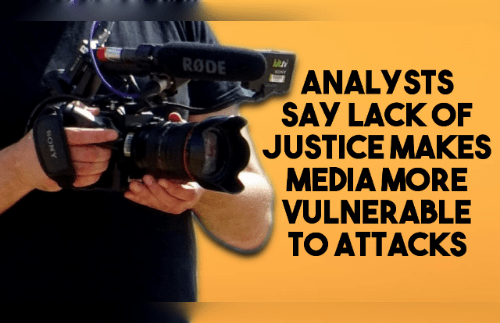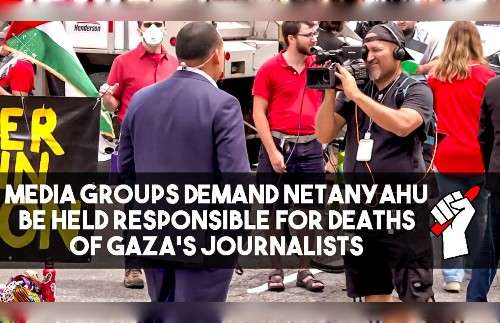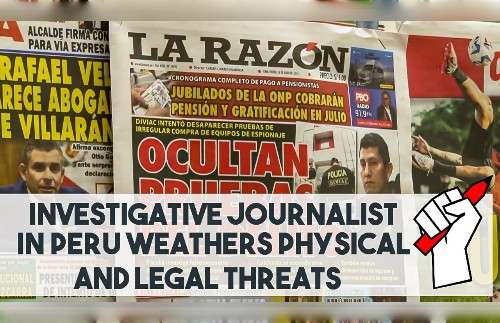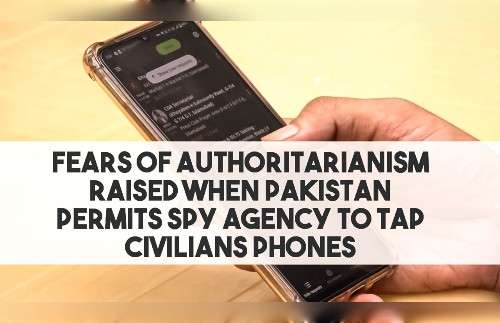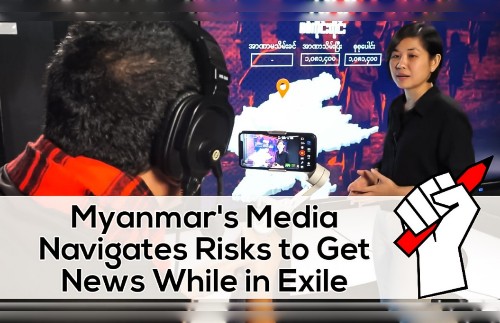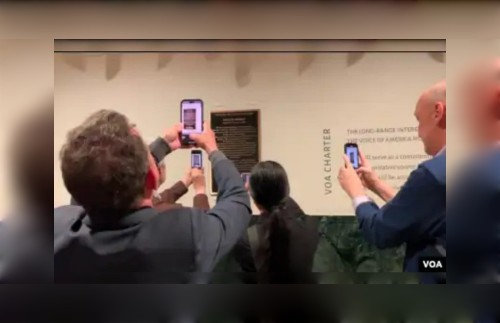
Reporters Without Borders (RSF) shows how the future national security law that Beijing intends to impose on Hong Kong could be used as a pretext for repressing journalists, as is the case elsewhere in China.
The national security law that Beijing intends to impose in defiance of Hong Kong’s autonomy could come into force during the summer, despite widespread popular rejection. A survey published on June 18 by the Hong Kong Journalists Association (HKJA) indicates that 98% of journalists are opposed to it, fearing that this future regulation will be used against them, as is already the case elsewhere in China. .
The decision, adopted on 28 May by the National Assembly Chinese People, is to allow the repression of “terrorism” , the “secession” of “sedition” and the “foreign interference” in the Hong Kong area . These four crimes, for which no official definition has yet been given, are in China punishable by death and frequently used against journalists.
These regulations will give the Chinese regime the means to intervene on Hong Kong territory with an appearance of legality to harass and punish journalists who displease it, worries Cédric Alviani, director of the East Asia office of Reporters Without Borders ( RSF). The vast majority of the 114 journalists currently detained in China have been arrested or sentenced on the basis of crimes linked to national security. “
Four catch-all crimes
1 – “Terrorism”
- Usual definition: Terrorism refers to the illegal use of force and intimidation for political gain, especially against civilians. The Beijing regime considers any act threatening its security to be terrorism and often confuses other close crimes such as “disclosure of state secrets” , “treason”and “breach of security” of the State ” .
- Situation in China: At least seven journalists are currently detained for “revealing state secrets” including the Swedish publisher Gui Minhai , main shareholder of the Hong Kong bookstore Causeway Bay, kidnapped in Thailand in 2015 and sentenced in China to 10 years of prison in 2019 .
- Risk for journalists in Hong Kong:The Chinese regime and the Hong Kong executive do not hesitate to qualify the pro-democracy movement as terrorism, any journalist covering demonstrations risks being accused of promoting this crime. With the National Security Law, the media publishing confidential informationabout the Hong Kong executive or Chinese regime officials could also be charged with “leaking state secrets”.
2. “Secession”
- Usual definition: Secession is the fact for a group or a region to voluntarily separate from a State to constitute an independent nation or to join another nation. In China, the regime often confuses separatism (promoting or working for secession) and considers that this crime also applies to individuals and groups promoting regional cultures and languages as Uighur or Tibetan .
- Situation in China: In the autonomous province of Xinjiang, at least 70 journalists are detained for reasons linked to separatism in the context of the repression against the Uighur minority. Journalist and academic Ilham Tohti , winner of the Václav Havel Prize of the Council of Europe and the Sakharov Prize of the European Parliament, was sentenced to life imprisonment for separatism in 2014.
Risk for journalists in Hong Kong:With the national security law, any journalist writing about the Hong Kong identity or the pro-independence movement would risk being accused of separatism. This could have been the case for Victor Mallet , editor-in-chief for Asia of the Financial Times, expelled from Hong Kong in 2018 after having moderated a debate of the Club of foreign correspondents giving the floor to a militant separatist.
3. “Subversion”
- Usual definition: Subversion means trying to undermine institutions or overturn the established order. In China, this crime is often amalgamated with “sedition” (inciting the population to rebel against the authority of the state) or qualified using the terms “stir up quarrels and cause unrest” and “spread false rumors” .
- Situation in China: At least 24 journalists are detained for ” subversion of state power “, “inciting subversion” and “stirring up quarrels and causing unrest” . In 2017, political commentator Wu Gan , who denounced the corruption of regime officials, was sentenced to eight years in prison for subversion.
- Risk for journalists in Hong Kong:With national security law, journalists reporting on pro-independence activists, newspapers publishing platforms criticizing the Hong Kong executive or the Chinese regime, could be sentenced for “sedition” . Media reporting on corruption or illegal practices by Chinese leaders could also be charged. The directors of the satirical television show Headliner , recently deprogrammedfrom the public network RTHK after mocking the police, could also have been sentenced for “sedition” .
4. “Foreign interference”
- Usual definition: Foreign interference is the visible or hidden intervention of a state in the internal affairs of another state. On the continent, Beijing often mixes up the crimes of “infiltration” (the fact that a State places agents allowing it to influence the functioning of its administration) or “espionage” ( the collection of confidential information for the benefit of another State.
- Situation in China: According to the rhetoric of the Chinese Communist Party, foreign journalists are unofficial agents of the state from which their media originated. Since the start of the year, 16 journalists working for major American media have been expelled by the regime in so-called retaliation for activities of the American government. An Australian writer and journalist, Yang Hengjun , has also been detained since January 2019 for “spying” . An Australian writer and journalist, Yang Hengjun , has also been detained since January 2019 for “spying” .
- Risk to journalists in Hong Kong: With national security law, foreign media correspondents or mployees, or their sources, can be accused of serving powers at any time and be subject, as in China, to acts of surveillance and harassment. In January 2020, Hong Kong chief executive Carrie Lam herself hintedthat certain foreign media outlets would be relays for Western governments.
The Hong Kong Special Administrative Region of China (HKSAR), once a bastion of press freedom, fell from 18th place in 2002 to 80th this year in the World Press Freedom Index published by RSF. The People’s Republic of China stagnated 177th out of 180.
Copyright ©2016, Reporters Without Borders. Used with the permission of Reporters Without Borders(RSF), CS 90247 75083 Paris Cedex 02 https://rsf.org
Escaping from Scam Center on Cambodia’s Bokor Mountain
UN Security Council Meets to Discuss Children and Armed Conflict
10 Shocking Revelations from Bangladesh Commission’s Report About Ex-PM Hasina-Linked Forced Disappearances
Migration Dynamics Shifting Due to New US Administration New Regional Laws
UN Security Council Meets to Discuss the Maintenance of International Peace and Security and Artificial Intelligence
Winter Brings New Challenges for Residents living in Ukraine’s Donetsk Region
Permanent Representative of Israel Briefs Press at UN Headquarters
Hospitals Overwhelmed in Vanuatu as Death and Damage Toll Mounts from Quake
Subscribe Our You Tube Channel
Fighting Fake News
Fighting Lies















